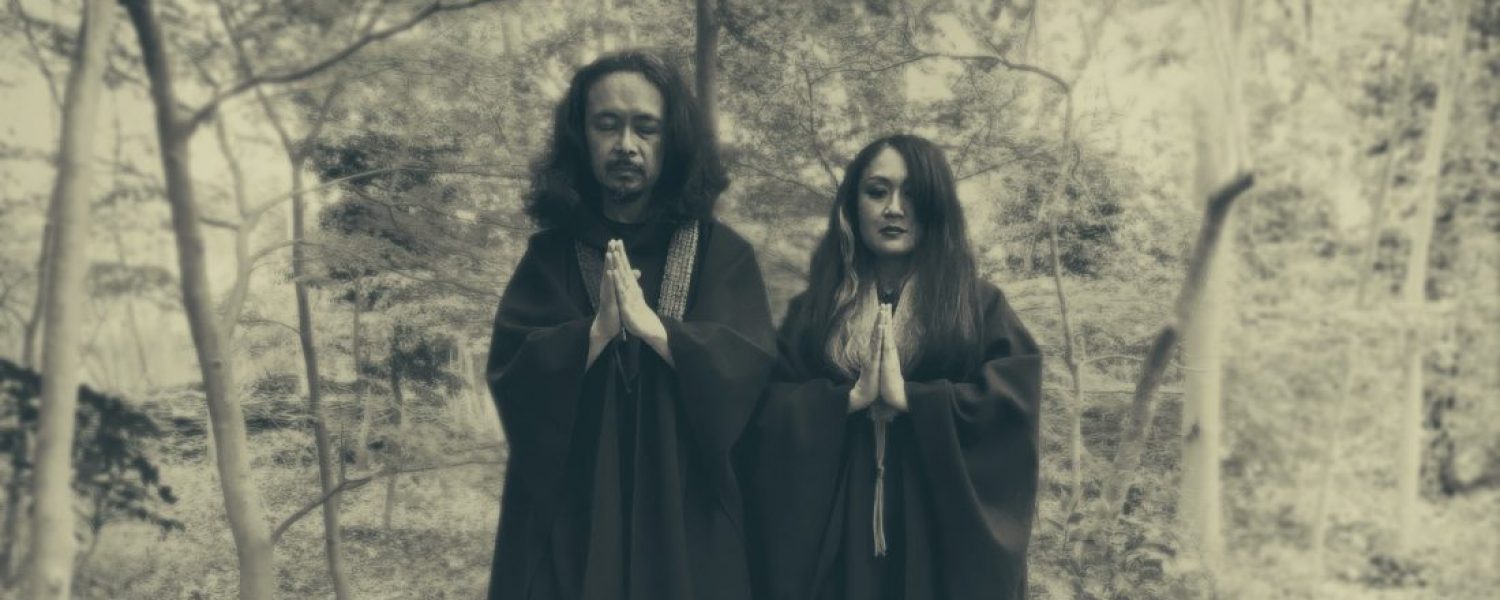By BRIAN GIFFIN
SIGH’S new album is about two things, and both of those things are described by the word “shiki”. Indeed, as vocalist and mastermind Mirai Kawashima explains, shiki is a pretty versatile word.
“If you write it in the kanji, Chinese characters, you can pin down the meaning but from the phonetic view you can’t detect the meaning. Shiki has a lot of meanings, from “time to die”, “four seasons”, “ceremony”, “conducting an orchestra” – there are so many meanings. Japanese is a very irrational and stange language, for sure. As far as this album goes,” he says, getting to the theme of his latest work, “four seasons and time to die are the main themes.”
Shiki is the twelfth full-length studio album for the Japanese avant garde act, who in earlier days were the only non-Scandinavian band signed to the notorious Deathlike Silence. Since that time, Sigh has become revered in cult circles as one of the most unique practitioners of extreme metal art. The band’s raw black metal intensity combined with traditional Japanese instrumentation, saxophones, strings and electronics has resulted in a catalogue of unpredictable weirdness, beauty and scope few other artists have produced. If their music has occasionally been labelled jarring and chaotic, Shiki maintains Sigh’s penchant for experimentation while also being one of their more well defined efforts.
Kawashima explains that the deeply personal nature of Shiki may account for its sharper focus.
“A large part of the album is about my personal fear of getting old and my fear of death,” he reveals. “I wouldn’t call it a concept album, but it’s got a theme, for sure. It’s probably more consistent than other albums by us, I guess.”
Fans who may be concerned this means Sigh have turned away from their patented eclecticism should fear not. While Shiki lacks wild divergence like Heir to Despair’s Heresy suite or some of the more overt grandiosity of 2001 masterpiece Imaginary Sonicscapes, this album condenses its epics into smaller spaces. Penultimate track Mayonaka no Kaii manages to pile black metal, throat singing, flutes, traditional Japanese string orchestrations and a Hammond organ/guitar trade off into just five and a half minutes without veering into complete chaos.
It is also the first time Kawashima has performed a full album in his native language. Again, he puts this choice down to the personal connection he has to the material.
“Musically I think this is the most Japanese album by Sigh. Everything is very Japanese this time, because I wanted to express my feelings about my fear of death and getting old as honestly and as straightforwardly as possible, so I felt that I had to use my own language to achieve it. It is very hard to express my feelings honestly if I sing in English. I had to sing all the lyrics in Japanese this time. This is the first time I’ve sung 100% in Japanese.”
The cover art reflects the overarching theme, depicting a man watching falling cherry blossoms as Death looms behind. Cherry blossoms are a metaphor for the fragility of life, Kawashima explains, and it’s an idea he comes back to more than once in conversation.
“The cover artwork is very Japanese too,” he says, “because it is based on a traditional Japanese poem written about 800 or 900 years ago that describes a scene where an old man watches the cherry blossoms blown off by the strong Spring wind. He identifies the petals blowing in the wind with himself and that he has to die pretty soon. The cherry blossom is a symbol of the fragility of your own life.”
Along with his wife, Dr Mikannibal, and long-time collaborator Satoshi Fujinami, Kawashima brought in Mike Heller and Frédéric Leclercq for the drumming and guitar parts. Both obviously used the opportunity to really show off a bit.
“It was very easy to work with [Fred] because we are able to musically talk,” Kawashima says. “He knows everything about heavy metal, so it was very easy to tell him what I wanted from his guitars and obviously he’s by far better than any guitarist I’ve worked with before. So it was a pleasure to work with him, finally.”
As for Heller, he provides a wonderfully off-tap drumming performance where he seems to have released himself from any form of restraint.
“He’s a crazy drummer! I asked him to play as crazy and as flashy as possible, so I think it fits in very well with our music. His drum style fits perfectly.”
Singing in Japanese is the final and vital element in the alchemy of Shiki. As noted, it’s the first Sigh album to feature Japanese-only vocals, something that Kawashima was reluctant to do for a long time. English has long been the language of rock, but it’s becoming increasingly accepted for artists to perform in their native tongue.
“Heavy metal and rock in general has a strong connection to the pronunciation of English because English is a very rhythmic language and rock is very rhythmic music. On the other hand, Japanese is not rhythmic at all. It’s very melodic. It has a lot of inflection, rather than rhythm. At first, in the early days, I didn’t want to sing in Japanese because I grew up listening to heavy metal in English for a long time, but also Sigh fans are from the US, Europe or Australia, so I wanted the fans to understand what I was singing about. But these days, bands using their own language is being accepted.”
Sigh is appearing in Melbourne February 24 and 25 at the Bendigo Hotel.





























